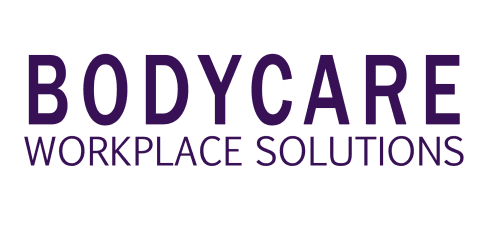The balancing act: physical, mental and social well-being at work

Most of us will spend about one-third of our lives at work. That means it’s essential that workplace well-being should be a priority for all of us – physically, mentally and socially. But how can we take care of these three essential aspects of our health at work? And what can employers do to ensure the workplace is a healthy environment for all?
Workplace well-being – finding the right balance
As far back as 1946, the World Health Organisation recognised, “health and well-being is a state of complete physical, mental and social well-being – and not merely the absence of disease or infirmity.”
Our workloads and working hours have increased dramatically since then. Technology has led to many of us taking our work home with us, and always being contactable outside of work hours. This means many of us are now struggling to achieve a sensible work-life balance. Failure to achieve this causes a lack of engagement at work and can lead to mental and physical health problems.
Poor-quality physical environments and a lack of social cohesion and interaction at work can also have highly negative effects on well-being, causing employees to feel demotivated and reluctant to participate, as well as sometimes presenting risks of injury and illness.
These problems aren’t confined to Australia – they’re so widespread that the World Health Organisation is encouraging businesses worldwide to prioritise workplace well-being, so the causes of physical and mental illness at work can be prevented before they have to be cured.
This involves shifting focus from wellness to well-being, putting in place cohesive structures and programs that take care of the physical, mental and social health of employees, and encouraging best practices in the workplace.
From wellness to well-being, and why
There are huge advantages for businesses in taking this approach. A joint study by the Australian and ACT Governments reveals that absenteeism costs the Australian economy approximately $7 billion each year. However, a far bigger problem is that of presenteeism, where employees are physically present at work but are not performing effectively or contributing to the workforce in any meaningful way. The estimated cost of this is a huge $34.1 billion per year.
Much of this could be saved by fostering inclusive cultures at work and having the right systems and procedures in place. Profits will also be increased as workers become more engaged and productive.
Additionally, building a reputation for caring about the all-around well-being of employees helps companies retain existing staff and attract top new talent, giving them an even greater competitive edge.
Best practice physical, mental and social tactics at work
In the past, physical health and wellness have always been the main priority for companies, and there are many health and safety regulations in place which help to protect this. But there’s always more to do, and it’s increasingly being recognised that the mental and social aspects of employees are just as important. All need to be taken care of if people are going to remain happy, engaged and productive at work.
Physical health
Many companies now put fitness strategies in place for employees, including on-site gyms and yoga classes. It’s important that employees should be encouraged to take regular exercise, even if it’s a brisk walk at lunchtime to get them out of the office. Nobody should be expected to eat at their desk.
Injury prevention is another huge factor. Is the workplace safe? Does everyone have suitable tools to do their jobs effectively? Even sitting at a desk for too long can carry a huge risk of back injury, as well as other health problems that come with a sedentary lifestyle. Sit-to-stand desks can be an ideal solution, as they enable employees to do their work whilst standing up for part of the day, as they see fit.
Mental health
It’s vital that companies encourage an open conversation about mental health in the workplace, to end the stigma and make employees feel comfortable admitting if they have mental health issues.
The workplace factors affecting mental health should be taken into account. Does everyone feel comfortable contributing at work? Are their contributions encouraged and valued? Boosting self-esteem can make employees more productive and engaged.
Also, the failure to find a healthy work-life balance can have a negative impact on mental health. Flexible working arrangements like job shares, working part-time and working from home where possible can be hugely positive. Employees should also always be encouraged to leave the office on time, so they can spend time with their families and get enough sleep.
Social health
It’s essential that interactions between colleagues, and friendships in the workplace are encouraged. Research shows that employees who have friends at work, particularly a best friend, are seven times more likely to feel engaged at work, and achieve higher quality results. Companies need to encourage more interaction and teamwork, and should think about organising activities that give the team a chance to socialise together outside of work.
Negative workplace cultures such as bullying and harassment need to be stamped out as quickly as possible. There needs to be strong conflict management procedures in place so that any disputes can be resolved and a harmonious culture can thrive.
What the workplace can do
A safe, healthy workplace which is set out in a way that encourages social interaction can make all the difference to the workplace well-being of employees. Also, an open and caring culture which promotes the idea of talking about problems when they arise can prevent health issues before they get to the stage of needing to be treated.
There is no “one-size-fits-all” approach to workplace well-being. But by treating each employee as an individual, and encouraging them to speak out about the issues they face at work, we can achieve a cohesive, healthy and productive workplace culture.
If you have any questions about workplace wellness, or would like more information on the subject, please get in touch – we are always happy to help.


